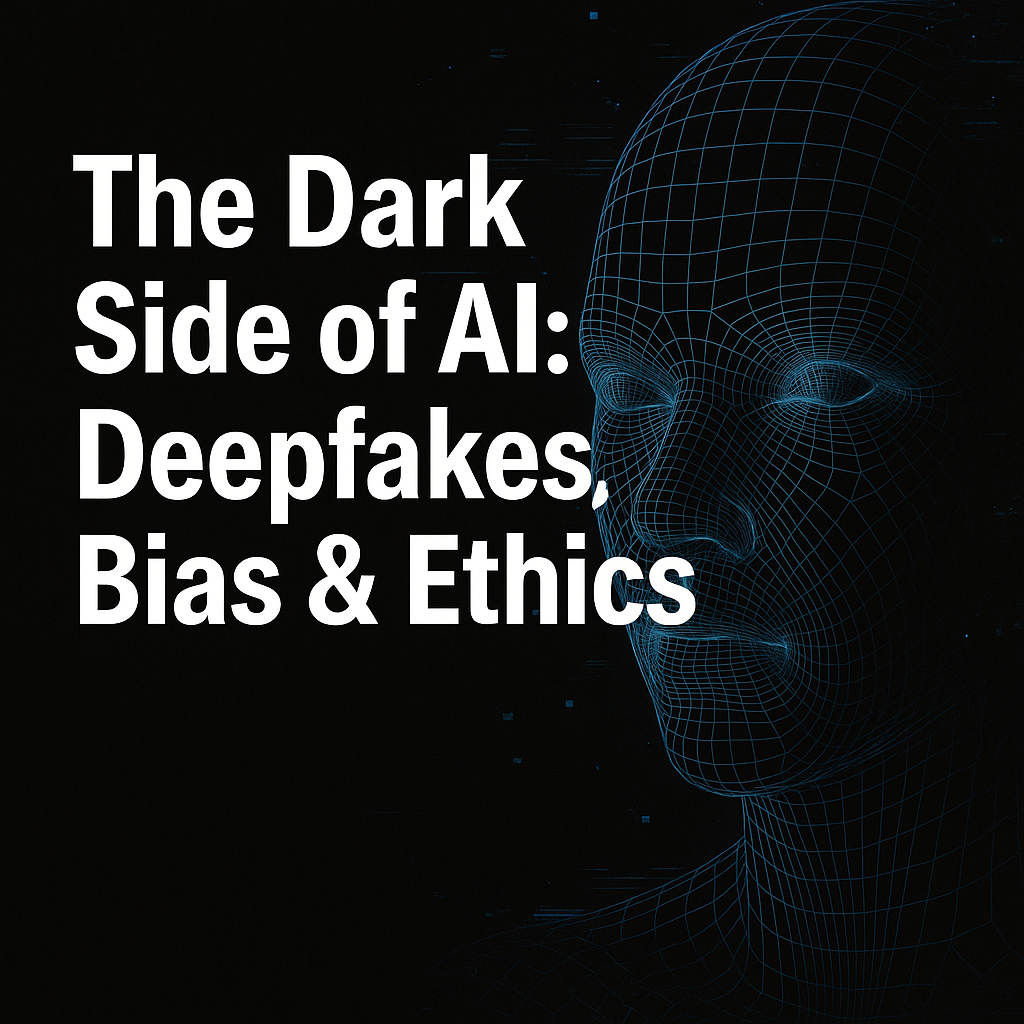Artificial Intelligence (AI) has come a long way—from automating routine tasks to assisting in life-saving medical diagnoses. But as with any powerful tool, AI has a darker side that society must address. While the benefits are undeniable, the misuse of AI can pose serious threats to privacy, fairness, and even democracy itself.
Let’s explore three of the most concerning issues in the AI world today: deepfakes, algorithmic bias, and the ethical gray areas that come with this technology.
1. Deepfakes: When Seeing Is No Longer Believing
Imagine seeing a video of a world leader declaring war—only to find out later it was completely fake. Deepfakes, a blend of “deep learning” and “fake,” are AI-generated videos, images, or audio recordings that make people appear to say or do things they never actually did.
While the technology behind deepfakes can be used creatively in entertainment and education, it’s often exploited for harmful purposes. Political misinformation, celebrity hoaxes, and even revenge porn have emerged from this technology. Worse, as the tools to create deepfakes become more accessible, even amateurs can manipulate media with frightening realism.
This raises a key issue: how do we trust what we see online? Social media platforms and tech companies are scrambling to develop AI-based detection tools to combat this, but it’s a cat-and-mouse game. As deepfakes get more sophisticated, detecting them becomes increasingly difficult.
2. Bias in AI: When Machines Mirror Human Prejudice
One of the most disturbing aspects of AI is how it can unintentionally reinforce societal biases. AI systems are only as good as the data they’re trained on. If the training data reflects human prejudice, the AI will learn and replicate it.
Take facial recognition as an example. Several studies have shown that these systems perform significantly better on lighter-skinned males than on darker-skinned females. This isn’t just a glitch—it’s a dangerous flaw that can lead to real-world harm. In law enforcement, misidentification can result in wrongful arrests. In hiring algorithms, biased AI can sideline qualified candidates based on gender or ethnicity.
Companies often claim their systems are neutral, but the reality is that bias is baked into the data. If we don’t actively work to identify and correct these biases, AI could amplify inequality rather than reduce it.
3. The Ethics Dilemma: Who’s Accountable?
AI doesn’t exist in a vacuum. Someone designs it, trains it, deploys it. Yet, when things go wrong—when an autonomous vehicle causes an accident or an algorithm denies a loan—who is responsible?
This lack of accountability is a major ethical concern. Unlike traditional systems where human decisions can be audited and explained, AI decisions often operate as black boxes. Even the developers may not fully understand how the algorithm arrived at a conclusion.
Furthermore, AI is increasingly used in sensitive areas like healthcare, criminal justice, and finance. Without transparency and oversight, there’s a risk that these systems could make life-altering decisions without any human judgment or empathy.
Ethical frameworks for AI are still in development, and laws are struggling to keep up. Meanwhile, corporations and governments are deploying AI faster than we can regulate it.
A Call for Responsible AI
Despite these challenges, the future of AI doesn’t have to be dystopian. By pushing for transparency, ethical standards, and inclusive data practices, we can build AI that benefits everyone. Tech companies must be held accountable, governments need to regulate wisely, and users should stay informed.
The dark side of AI isn’t a reason to abandon it—it’s a reason to use it responsibly. Innovation should never come at the cost of truth, fairness, or human dignity.
Final Thoughts
AI is one of the most powerful technologies of our time, but its dark side is real and growing. Deepfakes threaten the very concept of reality. Bias can turn algorithms into tools of discrimination. And ethical concerns remind us that not all progress is inherently good.
As we continue to integrate AI into our lives, we must do so with caution, curiosity, and a deep sense of responsibility.



